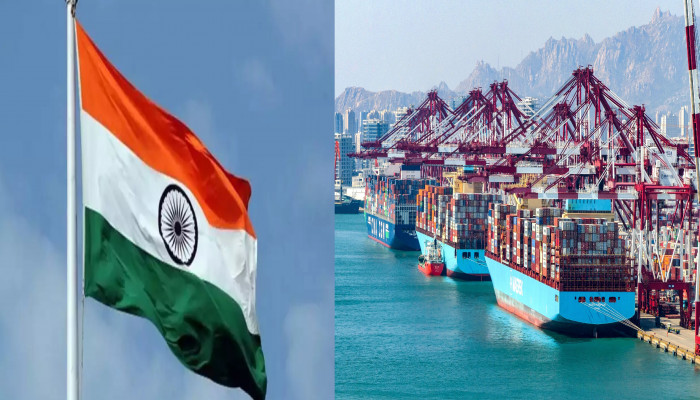India endorses first global carbon tax for shipping industry at UN meet
- In Reports
- 11:50 AM, Apr 12, 2025
- Myind Staff
On Friday, India and 62 other countries voted in favor of the world's first global carbon tax on the shipping industry, set by the United Nations' shipping agency. This decision was made after a week of tough talks at the International Maritime Organization (IMO) in London. The goal is to cut down greenhouse gas emissions from ships and encourage the use of cleaner technologies.
This is the first time a global carbon tax has been applied to an entire industry. Starting in 2028, ships will either need to use fuels that produce fewer emissions or pay a fee for the pollution they cause. The tax could raise up to $40 billion by 2030. However, all of this money will be used solely to reduce emissions in the shipping industry, not to support climate action in developing countries. Even though this is a significant step in global climate policy, carbon pricing is expected to cut shipping emissions by only 10% by 2030, which is far below the IMO's target of at least 20%. The deal was supported by 63 countries, including India, China, and Brazil, but was opposed by oil-rich countries like Saudi Arabia, the UAE, Russia, and Venezuela.
The US delegation did not take part in the negotiations and was absent during the vote. More than 60 countries, mostly from the Pacific, Caribbean, Africa, and Central America, had wanted a portion of the funds to be used for broader climate finance needs. Countries that are highly vulnerable to climate change expressed their disappointment with the final outcome. Tuvalu, speaking for the Pacific Island nations, criticized the lack of transparency during the talks. They also said that the current plan does not do enough to encourage a real shift to cleaner energy sources. Vanuatu's Climate Change Minister, Ralph Regenvanu, mentioned that countries like Saudi Arabia, the US, and other fossil fuel producers had repeatedly "blocked progress" and weakened proposals that could have helped the shipping industry meet the 1.5°C temperature limit set by the Paris Agreement. Under the new system, ships will be charged based on how much pollution they produce.
In 2028, ships using traditional fuels will have to pay $380 per tonne for the most polluting part of their emissions, and $100 per tonne for other emissions that go beyond certain limits. This pricing system will be introduced in stages and aims to gradually reduce the use of fossil fuels, including liquefied natural gas. While the main structure of the policy has been agreed upon, important details, like how the revenue will be used and shared, still need to be worked out. The policy is expected to be officially approved in October 2025. Environmental groups and representatives from smaller countries have said they will keep pushing for a more ambitious and fair plan that provides support for those countries most affected by the climate crisis.
Laurence Tubiana, CEO of the European Climate Foundation and a key figure behind the Paris Agreement, stated that the IMO's decision to introduce a global carbon pricing system for shipping is a good move, as it acknowledges that those who pollute should pay for the harm they cause to the climate. However, she also called the agreement inadequate because it does not include a proper shipping tax. "This was a missed opportunity," she stated, noting that taxes on polluting corporations and the ultra-wealthy are widely supported worldwide.







Comments